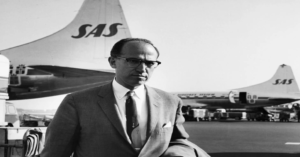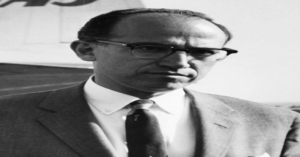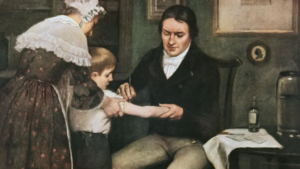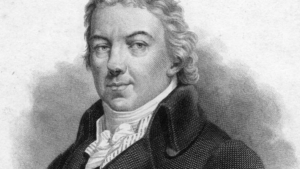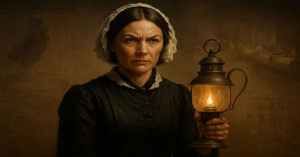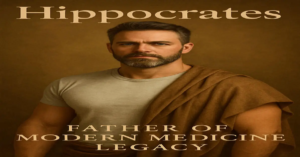PROLOGUE: THE DOLL THAT TAUGHT HER
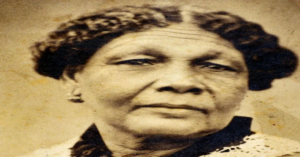
Kingston, Jamaica 1812
Seven-year-old Mary Seacole small fingers trembled as she pressed damp moss against her rag doll’s chest. Outside Blundell Hall, tropical rain hammered the roof while her mother tended a British soldier sweating through yellow fever.“Breathe for Mama, dolly,” Mary whispered, copying her mother’s motions. She didn’t know then how this childhood game would save lives decades later in the Crimean frost. Nor how the world would try to break the healer inside her.
THE SCENT OF HEALING (1805–1836)
Kingston’s Rhythm
Before dawn, Mary’s bare feet slapped against cool clay floors as she helped grind cinnamon bark. The air hung thick with the sweetness of guava jam simmering for British officers’ breakfast. Her mother’s voice, low and musical, instructed: “The fever bush needs moonlight harvesting, child. Its power sleeps by day.”
First Blood
At twelve, she assisted with her first childbirth. The enslaved woman’s grip crushed Mary’s hand as screams tore through the night. When the tiny body emerged silent, Mary watched her mother breathe life into the infant with mouth-to-mouth—a forbidden African practice. The baby’s first cry made Mary’s knees buckle with relief.
The Crossing
1821: Her first Atlantic voyage. For 45 days, 16-year-old Mary retched in the ship’s belly, clinging to jars of jerk seasoning to sell in London. White passengers recoiled from her touch. “I felt their stares like physical blows,” she’d confess later. Yet in a storm that cracked the mainmast, it was Mary who calmed vomiting children with ginger tea.
BONES IN THE RUBBLE (1836–1851)
Edwin’s Hands
Her wedding day: Edwin Seacole’s calloused palm enveloping hers at Kingston’s Holy Trinity Church. He ran a merchant store, eyes crinkling when she experimented with pimento liqueurs. Their private joke: “My restless bird—will you ever stop flying?”
The Fire Season
1843: Drought parched Jamaica. One spark, and Blundell Hall became an inferno. Mary stood barefoot in the street, Edwin’s wedding ring searing her breast pocket as flames consumed her childhood home. She’d later write: “The heat on my face felt like God’s punishment.”
Grief’s Anatomy
Edwin wasted slowly—consumption or heartbreak? For months, Mary pounded yams into paste because he couldn’t swallow solids. The morning she found him cold, she crawled into his coffin-shop’s sawdust pile and didn’t move for two days. Only the wail of a cholera orphan finally roused her.
Panama’s Lesson
1850: Cruces, Panama. Mary trudged through mud to a shack where her brother lay shivering. “It’s just ague,” he insisted. By midnight, his skin turned porcelain blue. Mary’s fingers found the swollen lymph node at his groin—buboes. Plague.
The Autopsy
The orphan boy’s body lay on palm fronds. Mary’s knife hesitated. “I’m sorry, little one,” she whispered, making the first incision. Inside, the intestines were rice-water white. She’d later write: “That child’s sacrifice taught me cholera starts in the gut. I never forgot.”
THE NO THAT CHANGED HISTORY (1854)
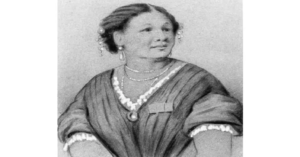
War Office, London
Rain slicked the cobblestones as Mary climbed the steps. Inside, a clerk sniffed at her Jamaican reference letters:
“Nightingale’s nurses are ladies of refinement.”
“I’ve dressed wounds since you were in leading strings, sir.”
His pen tapped the rejection ledger. “The Crimea is no place for… colonial women.”
Four Rejections
- Florence Nightingale’s Team: “Full, thank you.”
- War Office: “Unnecessary.”
- Crimean Fund: “We don’t sponsor civilians.”
- Nursing Society: Silence.
That night in a Lambeth boarding house, Mary stared at her reflection—a 49-year-old woman with greying hair and hands still stained with Panama’s clay. “Very well,” she told the mirror, “I’ll buy my own passage.”
Mary Seacole : A HOME IN HELL (1855–1856)
Building Dreams on Driftwood
Near Balaclava harbor, Mary nailed salvaged ship timber into walls. Thomas Day, her business partner, gaped as she traded pearl earrings for a rusty stove: “That’s your last jewelry, Mary!”
She shrugged: “What good are baubles to frozen boys?”
A Typical Day
- 5 AM: Kneading dough with chilblained hands
- Noon: Racing to the front with lint bandages soaking in her skirts
- Dusk: Pressing wet cloths to a sergeant’s typhoid brow
- Midnight: Writing to a dead soldier’s mother: “He spoke of your rhubarb pies at the end…”
The Battle of Redan: June 18, 1855
Cannon smoke choked the valley when Mary heard the cry: “Bailey’s down!”
She hitched her medic bag and ran.
“Mother, no!” shouted a lieutenant.
Bullets whined like mad hornets. She found 19-year-old Thomas Bailey from Dorset—his thigh pumping blood where shrapnel tore flesh.
“Look at me, Tommy!” she commanded, stuffing the wound with moss.
As she hauled him downhill, Russian grapeshot shredded her skirts. “Nearly there, lad,” she panted, tasting gunpowder and her own fear.
Mary Seacole Winter’s Cruelty
January 1856: The Hotel’s water barrel froze solid. Mary melted snow in her mouth to moisten dying lips. One night, she gave her wool cloak to a shivering sentry. Frost crystallized her hair as she wrote: “My bones ache like an old tree in a hurricane.”
Mary Seacole :DEBT AND THE DAWN (1856–1881)
Mary Seacole Bankruptcy
The peace treaty left Mary with £2,000 in debt (≈$300,000 today). Creditors seized her remaining spoons and kettles. In a dank London room, she stared at unpaid bills: “All that work… for this?”
The Soldiers Remember
When The Times reported her plight, veterans rallied:
- Sgt. Michael O’Leary (whose leg she saved): Organized a 4-day benefit
- Pvt. William Johnson: Walked 80 miles on a wooden leg to donate his pension
- 80,000 Londoners: Flooded Surrey Gardens in 1857, tossing coins into her apron
The Memoir No One Wanted
Publishers rejected her manuscript: “Who reads Negro women’s tales?” She self-published “Wonderful Adventures” in 1857. The dedication stung: “To British Sons Who Suffered Needlessly.”
Final Years
In Kingston, aging Mary still treated street urchins’ scrapes. Days before her death in 1881, she burned letters from a suitor—a French diplomat. “My heart belongs to my soldiers,” she told her cat, Purr.
EPILOGUE: Mary Seacole HANDS REACH
London, 2024
At St. Thomas’ Hospital, a Jamaican nurse touches Mary’s bronze skirt. “You’re why I wear this uniform,” she whispers. Downriver, Florence Nightingale’s statue gazes toward Mary’s back—a silent correction of history’s gaze.
Why Mary Seacole Humanity Resonates
| Her Struggle |
Modern Echo |
| Rejection by institutions |
Black nurses facing discrimination today |
| Medical innovation |
Folk healers in war zones |
| Dying destitute |
Crowdfunded healthcare workers |
| Unseen labor |
Immigrant caregivers |
Mary Seacole Ginger Tea Ritual
Some NHS nurses still sip ginger tea during breaks—a quiet homage. When asked why, one answered: “Because Mary knew warmth heals from the inside out.”
Mary Seacole LAST WORD
Mary never saw her statue. Never knew schoolchildren would speak her name. But in Crimea, a crumbling trench wall still smells faintly of cinnamon when rain falls—as if the earth remembers the woman who knelt in its mud, holding the hand of a dying boy, whispering:
“Hush now. Mother’s here.”




